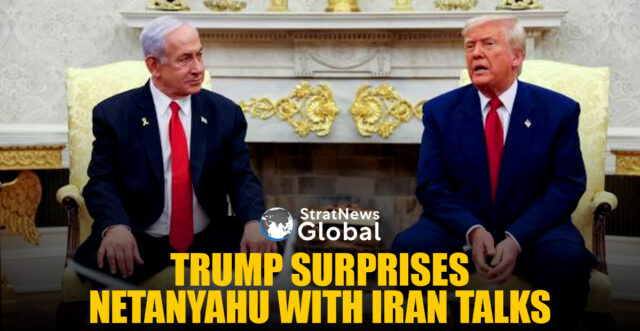U.S. President Donald Trump took Israeli Prime Minister Benjamin Netanyahu by surprise last month by suddenly initiating talks with Iran. According to eight sources, the outcome of the negotiations now depends on securing a few critical concessions aimed at preventing Iran from building a nuclear weapon.
The pivot to negotiations with Iran in April was a shock for Netanyahu, who had flown to Washington seeking Trump’s backing for military strikes on Iran’s nuclear facilities and learned less than 24 hours before a joint White House press event that U.S. talks with Iran were starting within days, as per sources familiar with the matter.
Tehran’s leadership remains deeply concerned that Netanyahu may launch a strike – deal or no deal, a senior Iranian security official, said.
However, in just three weeks, the U.S. and Iran have held three rounds of talks aimed at preventing Tehran from building a nuclear weapon in return for sanctions relief. A fourth round is expected to take place in Rome soon.
An initial framework under discussion preserves the core of the 2015 Joint Comprehensive Plan Of Action (JCPOA) – scrapped by Trump in 2018 during his first term, eight sources said.
A deal may not look radically different to the former pact, which he called the worst in history, but would extend duration to 25 years, tighten verification, and expand so-called sunset clauses that pause but don’t completely dismantle aspects of Iran’s nuclear program, all the sources said.
New Agreement
Under the terms being discussed, Iran would limit stockpile size and centrifuge types, and dilute, export or seal its 60 percent uranium stock under unprecedented International Atomic Energy Agency (IAEA) scrutiny – all in exchange for substantial sanctions relief, all the sources said.
Dennis Ross, a former negotiator under both Republicans and Democrats, said that any new agreement must go further than the JCPOA by imposing a permanent, structural change in Tehran’s nuclear capabilities – shrinking its infrastructure to the point where developing a bomb is no longer a practical option.
“Anything less would leave the threshold threat intact,” he said.
Foremost is the question of Iran’s capacity to enrich uranium, something Washington and Israel say must stop entirely, leaving Iran reliant on imported uranium for Bushehr, its only existing nuclear power plant, located on the Gulf coast.
Netanyahu is demanding “zero enrichment” and a Libya-style deal that dismantles Iran’s nuclear infrastructure.
‘Right To Enrich Not Negotiable’
Iran says its right to enrich is not negotiable. However the size of the uranium stockpile, shipping stocks out of the country and the number of centrifuges are under discussion, three Iranian officials said.
One way out could be for Iran to accept long breaks to the enrichment program, through an extension of sunset clauses, said Alex Vatanka, a senior fellow and the founding director of the Iran program at the Middle East Institute in Washington.
“The Iranians, if they were smart, they would settle for much longer sunset clauses going into the future,” Vatanka said, emphasizing the importance of each side being able to claim victory in the talks.
Another possible compromise could involve Iran retaining minimal enrichment, with 5,000 centrifuges, while importing the rest of the enriched uranium, possibly from Russia, one of the three Iranian sources, a senior security official reported.
In return for limits on enrichment, Tehran has demanded watertight guarantees Trump would not again ditch a nuclear pact, the three Iranian officials said.
The JCPOA only permitted Iran to accumulate enriched uranium produced by its first generation IR-1 centrifuges, but now Iran is using far more advanced models banned under the 2015 deal.
A senior regional source close to Tehran said the current debate over Iran’s uranium stockpiles centers on whether Iran “will keep a portion of it – diluted – inside the country while sending another portion abroad, possibly to Russia.”
“Essentially, the negotiations are shaping into a “JCPOA 2” with some additions that would allow Trump to present it as a victory, while Iran could still keep its right to enrichment,” the senior Iranian official said.
Former negotiator Ross points out the contradiction: Trump abandoned the JCPOA for being too weak, and as a result now faces a reality where Tehran stands at the threshold of nuclear weapons capability.
“Accepting a deal that mirrors or softens the original would be politically indefensible,” he said, suggesting a deal must slash centrifuges from 20,000 to 1,000, ship out all enriched stockpiles, and impose intrusive, penalty-backed inspections.
(With inputs from Reuters)





